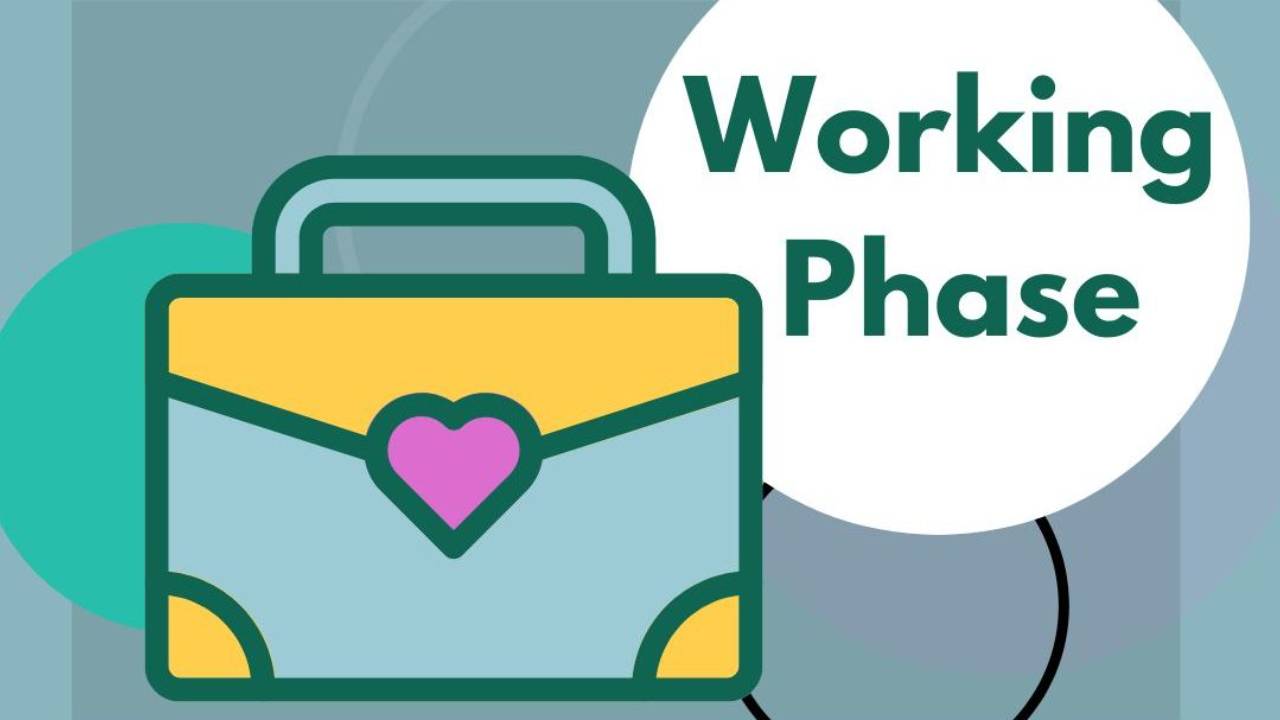Is Cussing in Session Unprofessional or Good Care?

Working Phase is a weekly newsletter to help therapists be informed, resilient, and effective in and out of the therapy room. Was this email forwarded to you? Subscribe now to receive the newsletter in your inbox, every Sunday, totally free!
What should you do when a client apologizes for cussing in session?
What if it’s more than your typical F-Bomb? What if it’s a slur?
We carry an internal contradiction in the role of therapist: We have to make enough space for a client to be themselves. But we also have a role in helping them navigate their life more effectively.
So what do you do when they say something that makes you cringe?
Like many issues, the answer is, “it depends.” But I have a framework you can borrow for the thorny surprises that come up in the therapeutic conversation.
Consider 3 factors: Rapport, Culture (including age-appropriateness), and Goals.
Rapport
Rapport is the positive relationship built from genuine connection and mutual respect. If the client is generally disrespectful, aggressive, or disconnected in therapy, their language may be worth exploring for deeper meaning. If you don’t normally curse, and you just do it in session to match a client’s energy, that will ring hollow.
So with each client, decide how much of yourself you want to bring into the room, and what positioning you have in the room. You are not required to have a foul mouth to do good work with cussing clients! You can show them how people with certain values still are passionate, compassionate, funny, nonjudgmental, and helpful. It is more important to build rapport in genuine ways than it is to “prove” you accept someone by being inauthentic.
Culture and Age-Appropriateness
There are clear generational differences between humans’ relationships with cursing, similar to the ways language and other forms of expression morph over decades.
For example, in 1980, tattoos either had deep cultural significance, military, gang, drug, or violent connotations. In 2025, tattoos are meaningful to some people, and are just a fun activity to do on Friday the 13th for other people.
In the world of broadcast TV and cable (30+ years ago), children could grow up without hearing more than the mildest cuss words. In the current world of streaming and YouTube, F-bombs are just punctuation.
If you work with a minor who is experiencing significant social or family strife over their language, it might be worth asking how they picked up that language, what they hope to gain by speaking that way, and why adults are not keen on it.
But if you’re working with an older teen, or adult, you may want to take a moment to consider their context before policing their language. It might be worth being the person that sees, accepts and cares for them regardless of the presentation of their words. And that leads us to the final point:
Goals
What is your goal with the client? If they are dealing with the consequences of poor communication, difficulty reading the room, or with a history of harming people? Yeah, you need to get curious about that language! With them! And with your ears and mind open!
But if your goal is to give them a chance to practice being themselves, and they want to try out this part of their identity, then let them! And help them understand what their impact on others will be in the process.
And remember: The secret to making space for your clients to be themselves is to take a little more space for you to be yourself. If you need to let off some language-based steam, cultivate some spaces where you can speak freely outside of the therapy room too.
I hope you do that this week, and help a colleague do the same.
Supporter Connect and Learn: Save the Date, Monday 10/6!
The WP Private Practice Primer was uploaded to your library last week!
I’m going to be focusing on my CEs this fall, so I’m bringing you along with me with a CE roundup after every class.
If you need a sneak peak on trauma-informed CEs trainings that don’t make you want to scream from boredom, I’ll review 5 trainings EXCLUSIVELY for you over the next few months.
And don’t forget to save the date for our quarterly gathering, Monday, 10/6, 7pm Eastern, 4pm Pacific!
Essential Downloads: [Title]Ready for Private Practice? Don't Leap Without This.
Are you a mental health professional dreaming of private practice? Or maybe you're already in the air, feeling like Wile E. Coyote with scrambling feet? The fantasy of private practice is tempting, especially when your current work environment is tough. The reality of private practice is both rewarding and challenging.
Just over a week ago, a friend came to me, ready to take the leap into private practice. I poured out everything I've learned over the past 6 years, from the best resources to the biggest lessons. I realized that it was a conversation I’ve now had with dozens of people, so I pulled together my thoughts into this blueprint: The WP Private Practice Primer.
I want to save you from a thousand random Google searches. This Primer is the lessons learned from myself and peers, designed to get you started on the right path and help you avoid the most common, costly mistakes.
Inside this guide, you'll find:
-
My curated list of free and paid resources that actually helped me build my practice.
-
The one book that finally made "business money" click for me.
-
A simple system to know if your practice is working before you quit your job and commit to it full-time.
Investing just $5 now can save you dozens of headaches and potentially thousands of dollars in the long run. Stop the endless searching and start with a clear, realistic plan.
Get the WP Private Practice Primer and build your practice with confidence.
Intergenerational Exchange: 1 CE AI in the Therapy Room
This is a quick reminder about the free 1 CE course on AI in the Therapy Room, happening this Wednesday, August 13th, at 1pm Eastern/10am Pacific.
Drs. Lisa Marie Bobby and Rachel Wood will be covering themes we've discussed, like the difference between therapist-facing and client-facing AI tools and developing professional policy.
They'll also expand on other important topics, including client advocacy and how to update your informed consent.
If you've been looking for a realistic, hype-free overview of AI in our field, this is a great opportunity to gain valuable insight and a free 1 CE credit. Be sure to sign up before the deadline to secure your spot!
Joy Intervention: Two Cooking Channels
|
|
Whether you watch for inspiration or for entertainment, these home cooks’ style and approach consistently leave me smiling (and hungry).
What great reminders that while many people do the same things, it's your specific flair that can make a special impact!







Responses